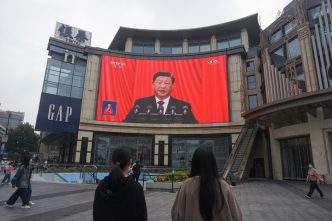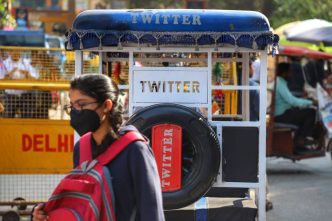Graphic online depictions of sexual assault, homophobia and racist imagery (sometimes involving Australian lawmakers) and life-threatening intimidation (including calling for targets to kill themselves) are a growing part of the Chinese Communist Party’s toolkit of …
ASPI has analysed thousands of suspicious tweets posted in 2021 relating to the Indonesian region of Papua and assessed that they are inauthentic and were crafted to promote the policies and activities of the Indonesia …
South Asian social media is now a contested space. Multiple politically motivated actors deploy inauthentic accounts to shape the discourse on the region’s historical and modern geopolitical disputes. One of the region’s longest running disputes …
ASPI works closely with Twitter to analyse information operations and disinformation datasets. High-confidence attribution isn’t always possible in the analysis of these datasets, but we can identify behavioural patterns within the data in order to …
The Chinese Communist Party is using social media and disinformation campaigns to project its preferred narratives about Xinjiang and influence unwitting audiences around the globe. Instead of improving its treatment of Uyghurs and other Turkic …
A Chinese Communist Party information operation is using environmental, political and health concerns to undermine efforts to diversify global rare-earth supply chains. The operation is focused on audiences in the United States, Australia and Malaysia. …
The Chinese Communist Party has a problem with women of Asian descent who have public platforms, opinions and expertise on China. In an effort to counter the views and work of these women, the CCP …
A subset of a pro–Chinese Communist Party network, known for disseminating disinformation on US-based social media platforms, is breaking away from its usual narratives in order to interfere in the Quad partnership of Australia, India, …
A new website launched by ASPI’s International Cyber Policy Centre is designed to identify nations using deception operations to manipulate potential adversaries, and their own populations. The Understanding Global Disinformation and Information Operations website provides …
Beijing’s quest to promote positive images of China overseas blurs the distinction between publicity and propaganda. Government departments contract private companies to funnel disinformation on Western social media and co-opt influencers alongside their legitimate public-relations …
Originally published 10 August 2021. On 24 July 2021, anti-lockdown protests across Australia led to chaotic scenes and arrests. Presented as demonstrations against Australia’s pandemic restrictions, the protests were also branded as part of a ‘World Wide …
Our new ASPI report, Borrowing mouths to speak on Xinjiang, explores how the Chinese Communist Party uses foreign social media influencers to shape and push messages domestically and internationally about Xinjiang that are aligned with …













